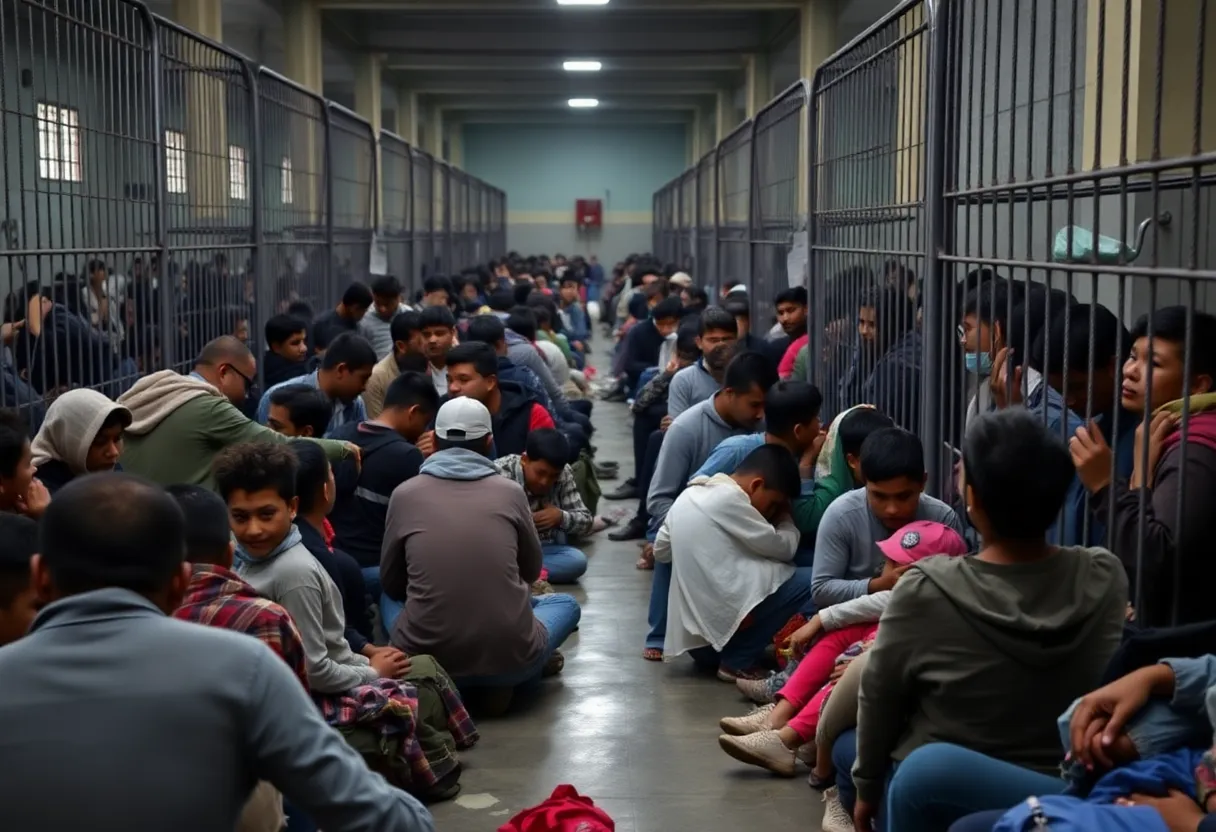

Conditions at CECOT Detention Center
U.S. Homeland Security Secretary Kristi Noem has announced plans to increase deportations of certain migrants to El Salvador’s CECOT, a facility criticized for its harsh conditions. Detainees, often held without access to justice, face a legal limbo with claims of being gang members met with family objections. Amid ongoing legal battles regarding the validity of these deportations, the Trump administration defends its policies while critics raise concerns over judicial oversight and potential violations of migrant rights. This shift in deportation strategy marks a significant change in U.S. immigration policy.
In a bold move that’s raising eyebrows, U.S. Homeland Security Secretary Kristi Noem announced plans to potentially ramp up the deportation of certain migrants to El Salvador’s infamous Terrorism Confinement Center, or CECOT. This facility has drawn criticism for its harsh conditions and is seen as a “black hole” for those deported, mainly Venezuelans accused of ties to gangs such as the Tren de Aragua.
The migrants currently at CECOT are in what many describe as a harsh legal limbo. They are held without access to justice, neither the Salvadoran nor the U.S. legal systems are available to them. Allegations about the detainees being gang members are met with strong objections from their families. Many insist their loved ones are simply migrants with tattoos, not criminals. The U.S. has acknowledged that a number of these individuals lack any criminal records.
It’s not all smooth sailing for the Trump administration, though. They’re currently facing a court battle over the legality of expelling Venezuelans. A U.S. judge is examining claims that migrant treatment might be violating a previous ruling, aimed at halting the transfers under certain conditions. Meanwhile, the administration argues this ruling doesn’t apply to their deportation practices.
Life inside CECOT is grim, with overcrowded cells housing up to 70 men at a time, while lacking basic amenities like food and sanitation. Detainees are often cut off from communication with relatives or legal counsel, further complicating their circumstances. Concerns about treatment in such an environment have been raised, with reports of harsh conditions, including claims of beatings and torture.
Noem mentioned that the government intends to leverage this harsh facility as a tool against migrants accused of crimes against the American public. During her visit to El Salvador, she signed an agreement with President Nayib Bukele aimed at increasing cooperation on security and migration issues. As part of the deal, the U.S. government committed to a hefty $6 million per year to facilitate the maintenance of deported migrants at CECOT.
While some see this as a necessary step to secure American borders, critics are sounding alarms about how these actions erode judicial oversight in determining guilt or innocence. Legal experts in both the U.S. and El Salvador are questioning the legitimacy of the migrants’ detainment, and many predict that attempts to seek redress through the Salvadoran courts may be futile.
In addition to Venezuelans, the deportation wave has included over two dozen Salvadorans alleged to be linked to the notorious MS-13 gang. This shift from past practices, where migrants were often sent to third-party countries rather than directly imprisoned, marks a significant change in deportation policy.
As the deportation saga unfolds, families and advocates are raising concerns about the criteria used to classify migrants as gang members, with many determined to fight what they believe is wrongful identification. The situation is evolving rapidly, as public opinion shifts and legal battles continue.
As discussions around immigration policies heat up, the implications of these actions will undoubtedly echo in the lives of many. This ongoing saga between the U.S. and El Salvador highlights the complexities of migration, justice, and humanitarian concerns affecting countless families.
News Summary As temperatures rise in Florida, golfers are adapting their play to avoid the…
News Summary The 2025 Child Cancer Fund Golf Tournament in Jacksonville is a heartfelt event…
News Summary GEICO is set to expand its operations in Tampa, Florida, and North Texas,…
News Summary Florida is anticipating a significant wealth transfer of nearly $884 billion over the…
News Summary Bay County has been recognized as the eighth best place for small business…
News Summary The third annual Seeding Jacksonville event is set to take place at the…